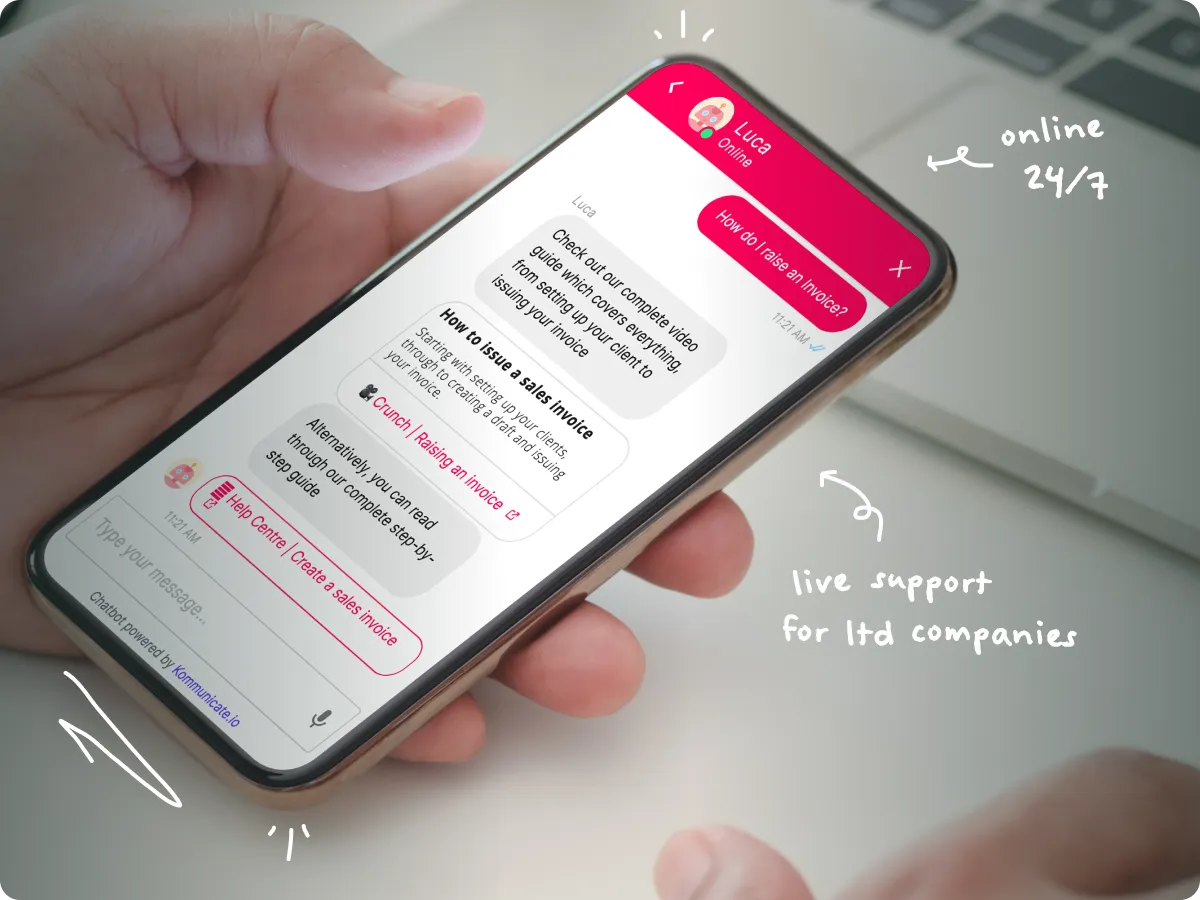In the UK, Partnership Tax Returns (or SA800 forms) are a big deal for businesses that work together. In a nutshell, a Partnership Tax Return is a document summarising the financial activity of a partnership over a specific period. But they aren’t just a piece of paperwork; they’re a super important way to show the government how your business partnership is doing financially, so that you can pay the right amount of tax to HMRC.
In today’s article, we’ll break down what exactly a Partnership Tax Return is, who must file one, when it’s got to be filed by, and what this type of tax return must include.
{{pt-self-assessment}}
What is a Partnership Tax Return?
A Partnership Tax Return (or form SA800) is a formal declaration of a partnership's income, expenses, profits and losses over the course of the financial year.
Partnerships, unlike sole traders or limited companies, aren’t considered separate legal entities from their owners. Instead, the partners themselves are individually responsible for the business' finances and tax liabilities. The partnership tax return consolidates the financial information of all partners, giving HMRC a rounded view of your business’ tax situation.
Who needs to file a Partnership Tax Return?
All partnerships in the UK are obligated to file a Partnership Tax Return each year. This includes general partnerships, limited partnerships, and Limited Liability Partnerships (LLPs):
- General partnerships: This is a business structure where two or more individuals (partners) come together to operate a business for profit. In a general partnership, the partners share responsibilities, decision-making, and the profits and losses of the business.
- Limited partnerships: Unlike general partners, limited partners' liability is restricted to the amount they have invested in the business.
- Limited Liability Partnerships (LLPs): This is a business structure that combines elements of a partnership and a limited company. LLP partners have limited personal liability, protecting their personal assets from business debts, similar to a limited company. Unlike general partnerships, all partners in an LLP enjoy this liability protection, while still retaining the flexibility in management and tax treatment typically associated with partnerships. This differs from both general and limited partnerships where personal liability is unlimited for at least some partners.
It's important to note that each partner in the business is required to report their share of the partnership's income on their personal tax return, in addition to the partnership filing its own return.
Partnership Tax Returns are necessary for both profit-making and non-profit partnerships, as long as they meet the criteria set by HMRC.
If your partnership conducts business outside the UK or has overseas partners, additional considerations might come into play, such as double taxation treaties, so it’s important to seek professional advice from a tax adviser if that’s the case for you.
When to file a partnership tax return
Just like the Self Assessment tax return deadline, the cutoff for submitting your online Partnership Tax Return in the UK is 31st January, and it’s a few months earlier (31st October) if you’re submitting a paper SA800 form.
It's always crucial to be aware of the deadline and get your tax return filed before it comes, as the consequences of late filing or payment can result in penalties, interest, and even legal action.
What information do you need to provide in a Partnership Tax Return?
Filling out a Partnership Tax Return involves compiling detailed financial information about your business. Partnerships need to gather data on income, expenses, assets, liabilities and other relevant financial transactions made in that tax year. Some of the most important info disclosed in form SA800 includes:
- Income: This encompasses all forms of revenue generated by the partnership, such as sales, services, investments, and any other sources of income.
- Expenses: Keep track of your deductible business expenses throughout the year, including overhead costs, wages and other operational expenditures, to calculate your partnership's taxable profit accurately.
- Capital allowances: If your partnership owns assets used in the business, you may be eligible for capital allowances, which will reduce how much tax you need to pay
- Interest and charges: Any interest or charges incurred by the partnership, such as loan interest, should be recorded for tax purposes.
- Losses: If your partnership incurred losses during the financial period, these can be offset against profits in other periods, potentially reducing your overall tax liability.
- Capital gains: If your partnership disposed of assets that resulted in capital gains, these need to be reported as they may be subject to capital gains tax.
Once all the necessary information is gathered, partners can calculate the partnership's taxable profit. The tax is typically calculated based on the partnership's share of profits, and each partner is individually responsible for their share of the tax liability. It's crucial to consider any available tax reliefs, allowances and deductions to optimise the partnership's tax position.
It's worth noting that partnerships do not pay tax themselves; instead, the tax liability is passed on to the individual partners. Each partner must report their share of the partnership's profits on their personal tax return, where they will be subject to income tax.
Penalties for non-compliance
Filing partnership tax returns accurately and on time is not just a legal obligation; it's also crucial for avoiding penalties imposed by HMRC. Late filing penalties can range from fixed amounts to daily charges, depending on how late the return was filed. On top of that, interest may accrue on any outstanding tax liabilities.
Getting help from a tax professional
Given the complexity of tax regulations and the potential problems that can arise from not doing things properly, many partnerships choose to consult professional tax advisors for help. This is a smart choice for most partnerships, as an expert will be able to help you fill out your Partnership Tax Return correctly, optimise your partnership's tax position, avoid any penalties and answer any questions you might have about your partnership’s tax situation.
It’s particularly important to seek professional help if your partnership faces any unique circumstances, such as international transactions, complex financial structures or changes in partnership composition.
Final thoughts
Understanding partnership tax returns is important for any business working together in the UK. By filing your tax return on time and getting the numbers right, you not only follow the rules but also make sure the business pays the right amount of tax.
Whether you’re managing a general partnership, a limited partnership, or an LLP, you should prioritise staying informed about tax regulations and, when necessary, seek professional guidance to get your Partnership Tax Returns filed correctly and on time.
.svg)

.jpg)



.jpg)




.png)


